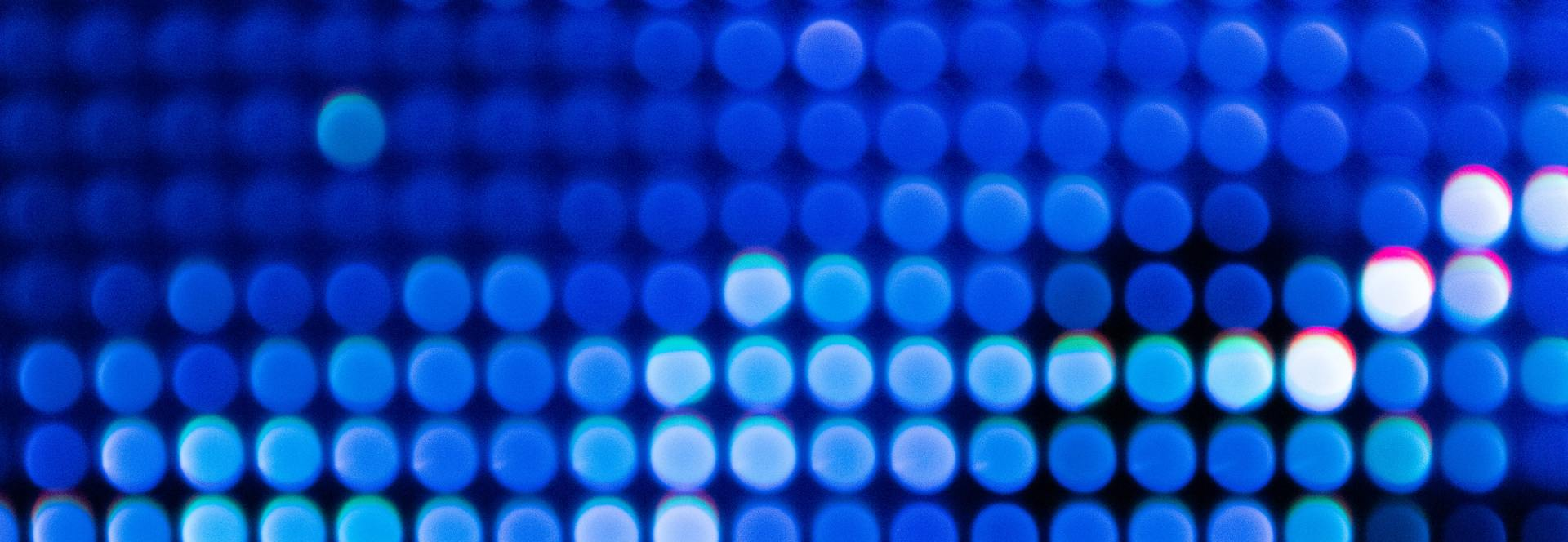What is parking validation & how does it work?

For parking lot owners and anyone in the business of parking management, validated parking is a key concept. And while it’s generally straightforward, there are a few nuances to setting it up and making validated parking be convenient & efficient for the vehicle driver as well as the parking operator.
In this post, we’ll talk about:
- What parking validation means
- How parking validation works
- Parking validation options
- In what scenarios validated parking might be right for your lot
- How parking validation works for lot owners
- How it works for businesses who validate parking
- How it works for parkers
- What customers think about validated parking
Alright, let’s get started.
What does parking validation mean?
Parking validation is a solution for extending free or discounted parking to some parking lot users of a paid parking facility. It’s generally considered a perk of being a customer. When a business “validates parking”, that is a shorthand way of saying, “When you dine/shop/make an appointment with us, you’ll park for less — or for free!”
When a parking ticket is "validated," it typically means the establishment a parking customer visited is paying for at least a portion of their customer’s parking, up to 100% of the parking price.
As a parker, getting your parking validated is a benefit of making a purchase at a business. For the business, offering validation is a way to incentivize customers to visit and purchase.
In our definitive guide to parking solutions, we explain that discounted parking rates and coupons are often referred to as “validated parking”.
How does parking validation work?
Typically, parking validations works like this: the driver of a vehicle takes a parking ticket upon entering the parking lot. The driver makes a purchase from a business that then stamps or scans the parking ticket or provides a separate printed coupon. When the vehicle driver exits the parking lot the parking is discounted or validated for a set amount or percentage.
While the above lists one of the more common scenarios, there are many variations. The biggest variable will depend upon the type of parking systems at the site.
Parking Systems with Barrier Gates:
- Payment on Exit: if payment is required upon exiting the lot, businesses may validate by providing a coupon to be scanned or code to be entered when the driver exits the lot. Alternatively, if a parking ticket is received at the entry, then that parking ticket may be scanned to validate so that the validation is automatically applied at the Exit.
- Payment at Entry: if payment is required before entering the lot, then the only way to validate parking is by providing a validation barcode or code to the vehicle driver in advance. For locations such as doctor’s offices or restaurants with reservations, this may make more sense than for a business that validates parking after a purchase.
- Pay & Display: When a receipt is displayed on the dashboard, the vehicle driver needs to be provided with the barcode or PIN code in advance of parking, similar to the Payment at Entry listed above.
- Pay By License or Pay By Space: For these two scenarios it is possibly to have the vehicle driver enter the place of business and request validation. The business will need to have a special machine or web access to create the validation on the parking server. In this case, there may be a few minutes between the time of parking and the time of validation, which could lead to parking citations.
There may have been more scenarios than you may have been anticipating, which is why parking validation options are so dependent upon the type of parking system that you select.

What are parking validation setting options?
Parking validations settings allow the Parking Operator to create:
- Single-use or multi-use validations
- Validations applicable for a number of days from first use
- Validations with a forced expiration date
- Flat rate discounts
- Percent-based discounts
- Re-rating or changing to a different rate structure
- And more
The Parking Operator or a business who has been granted rights to validations may apply the validation to discount parking.
In what scenarios is validated parking common?
Like most paid parking systems, validated parking is more common in busy, built-up urban areas where parking availability is limited.
When parking is scarce, paid parking becomes necessary. Otherwise, the parking areas that serve businesses would be used for parking by visitors who aren’t doing business with those offices or retailers.
To keep customers happy, the offices or retailers served by the parking lot can offer validated parking. These parking validations are normally time-limited. Depending on the types of validation, a consumer may have only part of their parking validated, such as one or two hours. But if they stay longer, then they have to pay for the additional charges.
A wide variety of organizations operate with validated parking, including:
- Government offices and institutions
- Restaurants and bars
- Banks
- Professional services
- Hospitals, pharmacies and medical service providers
- Malls and retail shopping outlets
- Hotels
- And more
Some building owners negotiate ongoing validations for their customers (apartment or office tenants), so the residents or employees can park for free while other parkers pay.
Many establishments will advertise the fact that they validate parking. It is a perk, after all.
How does validation work for parking lot owners?
As we explain in our post, 8 Things to Look for in Parking Equipment, some parking lot operators offer “validated” or discounted parking to merchants, tenants or nearby businesses.
At the most basic level, validated parking is offered in the form of stickers or coupons, which must be presented in conjunction with the parking ticket to reduce the parking payment due.
If you are a parking lot operator in need of more sophisticated validated parking, look for equipment like handheld or web validation to apply and report on special discounts.
Parking validation machines allow for real-time parking validation. With parking software, lot operators can program discounts by dollar amount, percentage or parking duration and create buttons for each type on the screen. Selecting the parking validation, then scanning the ticket takes seconds. The parking ticket is immediately validated. When the customer scans the ticket for payment or exit, the discount is automatically applied.
Parking validation works whether your lot is attended or unattended. Parking validation works if your lot collects revenue with or without parking barrier gates. We’ll discuss the details of how these gated and ungated scenarios work below.

How parking validation works
Many businesses need parking for their customers but don’t own a parking facility.
In urban downtown areas, restaurants, retail shops, salons, professional services, hospitals, offices and a wide variety of businesses rely on parking operators.
Those businesses and offices are competing with others who have their own parking lots. They realize their potential customers might choose to do business elsewhere if faced with the cost of paid parking.
Validated parking is a great incentive and can be good for business in an entire area.
To come to an agreement on validated parking, these businesses (restaurants, shops, doctor’s offices, etc.) have to negotiate the terms of the validated parking with the lot or garage operator/owner.
Those terms can include how many hours of validated parking merchants give to customers, plus the payment arrangements with the parking lot operator. This may included discounts for pre-paid parking or parking that is billed after usage.
How exactly the validated parking works, logistically, depends on the parking system in place. We explain below.
What do customers think of validated parking?
Customers love validated parking because they can save money. They’re happy when it’s a straightforward, fast process to get their ticket validated and exit the lot without paying.
But too often, they don’t understand how it works. And they’re frustrated when the validated parking only covers part of their parking fee if they believed they’d park for free.
This frustration is illustrated to comic effect in a Better Call Saul storyline revolving around an ongoing validated parking dispute.
Jimmy, the AMC show’s main character, consistently fails to get his courthouse parking validated for the appropriate time. Meanwhile, the parking attendant insists he needs the right number of parking validation stickers for the duration of his parking period. Conflict ensues every time — revealing the gap between the customer’s expectations and management procedures around validated parking.
In response to the show, dozens of posts online cropped up in which fans discuss the ins and outs of validated parking, including their own frustrations.
Real issues arise when ticket validation or exiting the parking lot is inefficient. For example, in a busy shopping area, there can be long lines at the exit. If the wait to exit a lot is long enough, the time-limited validated parking can expire… so by the time the parking customer gets to the booth or exit barrier machine, their validated parking no longer covers the bill.
Working out a smooth, simple system for validated parking is important for customer satisfaction. In fact, customers may stop patronizing businesses if the validated parking system is frustrating.
When customers expect their parking to be free (because of advertised validated parking) and it’s only partially validated, they’re disappointed. In fact, these customers are more unhappy than if they had never anticipated free parking, to begin with.
In this post, we’ll explain options for streamlining validated parking so it’s seamless for parkers, lot owners and retailers.
How validated parking works with gated systems
In parking systems with barrier gates, parkers receive a ticket on arrival in the parking lot and keep that ticket to pay on the way out, either at a machine or a cashier booth.
When a parker visits an establishment that offers validated parking, they may be eligible for a discount or free parking. Usually, parking in gated facilities is validated in one of two ways.
The parking facility operator may hand out pre-printed parking coupons, passes or stamps to establishments in the adjacent building(s), according to the terms of their agreement. These are the proofs of validation. For optimized automation, the barcodes/QR codes are recommended – either in paper or sticker format.
Those establishments (e.g. retailers or offices) then hand out the proofs of validation to their individual customers, who scan their validated parking ticket and/or coupons on exit. Parking operators can easily print out physical coupons, too, or order pre-printed validation coupons or stickers.
In addition to any physical hand out, automated validations via handheld or tablet may be applied to the parking ticket. For example, a Validation BOXX allows the merchant to validate a customer’s ticket by scanning it or typing the parking ticket number into the validator. The validation is automatically applied to the ticket and the parker gets the discount or freebie on exit.
Merchants don’t need to be equipped with a physical validation tablet or handheld to apply discounts or free parking automatically. For lower volume sites, they may wish to log into software on a desktop or laptop and validate parking using web-based app.
If the parking system is automated, the parker simply enters their validation at the parking gate exit machine.
If the parking facility is attended, the cashier would take the parking validation at the exit gate, apply the discount, take any remaining payment required and raise the exit barrier. The parking system point-of-sale machine, simplifies this whole process.

Parking software makes validation more powerful and more flexible
With parking software, lot owners can simply and easily set up custom validations to allow for dollar discounts, percentage discounts or a variety of rate structures.
Specific validations can be set for certain types of customers. For example, hotels serving groups may create a custom validation in the system for members of that group, giving the guests free parking but then billing back the event organizers.
All of the validations applied are integrated and consolidated into the parking management software that accommodates multiple fee structures.
Parking lot operators can access powerful custom reporting features, to keep track of validations and manage revenues.
How validated parking works in parking systems without gates
In a parking system without barrier gates, parkers pay in advance because there are no gates to control exits. Parking customers may display the ticket on their dashboard, pay by space number, or enter their license plate in a smart parking meter or parking app upon payment. The parking attendant or citations officers periodically checks to see that parkers have paid or are within the period for which they paid in advance.
Because parkers pay in advance, validated parking works differently in ungated systems. In some cases, parkers may need a validation coupon or pass secured in advance. In other cases, parkers may be given a code to enter or scan at the parking meter, to apply the discount or free parking upfront.
In an ungated system, the parker needs to be aware of the validation available before paying for parking on arrival.
Validated parking in ungated lots works well for repeat customers, tenant parking in an otherwise paid lot, special events (where validations can be provided in advance) or appointment-based services, where the validation details can be provided at the time the booking is scheduled.
Setting up validated parking with paid parking meters is a great way to convert a free parking lot to a revenue-generating lot. Businesses can reward legitimate customers while the parking operator charges the general public to use the lot.
How to know if a parking ticket validation machine is right for your lot
Validation can be a good choice if you want to charge some users for parking while offering discounted or free parking to customers or certain types of parkers.
Regardless of how high-tech or low-tech your parking operation may be, validation is always an option because there are so many ways to make it work.
However you configure parking validation, it’s essential to factor in the user experience. Make the process as seamless and clear as possible the best parking technology!

Talk to Parking BOXX about Parking Validation Machines and Software
Interested in adding validated parking to your operation? Parking BOXX systems integrate with our parking management software to make validation easy and almost infinitely flexible.


